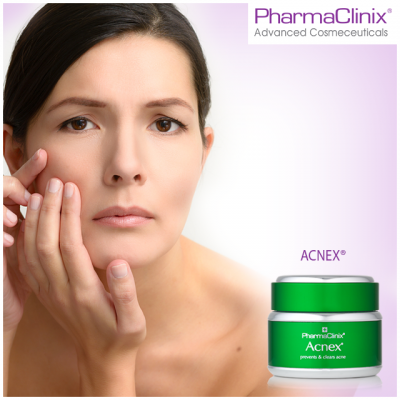TACKLING ACNE
Acne can happen to anyone, at any stage in their lives – not just teenagers, as is commonly assumed.
Many people needlessly get bogged down with acne, letting it affect their confidence and self esteem, but there are so many effective ways to treat the condition. Here is the lowdown of what works and what doesn’t…
Treatments Available:
The two main kinds of remedies for acne are systematic (medication taken orally) or topical (when applied to skin). Pharmaclinix, the best skincare brand in the UK, precisely highlights vital points when selecting antidotes.
Systematic treatments:
- Isotretinoin (Brand name Roaccutane): Sebum producing glands which causes acne are shrunk using this. But this should be administered carefully as it can potentially cause damage to the liver and blood cells. It can also make skin dry and flaky, causing itching and irritated skin. This is not recommended for pregnant women, as it is dangerously toxic to the foetus.
- Oral antibiotics: These reduce bacteria in sebaceous glands, but resistance to the antibiotics can occur, due to them being prescribed during a period of 3-6 months, which can also lead to thrush and stomach upsets.
Topical prescribed lotions/cream/gels:
Antidotes like Retionoids, Benzoyl Peroxide and Azaleic Acid have been proven to be not so effective, since significant issues such as the over-production of sebum, blockage of sebum ducts, inflammation and infection, are not addressed. These should also be avoided by younger people with dark skin, since they increase irritation and patchy skin darkening, with no overall improvement.
- Salicylic Acid 2%: Destroys bacteria which causes acne, by easily penetrating the skin and reaching the sebum. Sebum ducts are effectively unblocked, and no irritation is caused, as any swelling and redness caused by acne is lessened.
- Niacinamide 4% (Vitamin B3): Redness, swelling and irritation is drastically lessened, as sebum production is reduced.
- Octadecene-dioic acid(ODA or Dioic acid): Sebum production is reduced, sebaceous ducts are unblocked and it also works as an anti-inflammatory. Dark marks are left deep within the skin, caused by acne, but ODA has been clinically proven to prevent and treat hyperpigmentation, whilst also reducing melanin production.
According to Pharmaclinix who possess the best skincare products in the UK, darker skinned young people should adhere to a mixture of Niacinamide 4%, Salicylic acid 2% and Dioic acid 2% – a combination which has been clinically proven as the most effective to treat four main issues of acne. Experts at Pharmaclinix have created the best acne cream, Acnex designed specifically for those with darker skin tones. This cream encompasses the vital ingredients aforementioned, ensuring all aspects of acne are resolved.
*Results may vary in every individual.*

